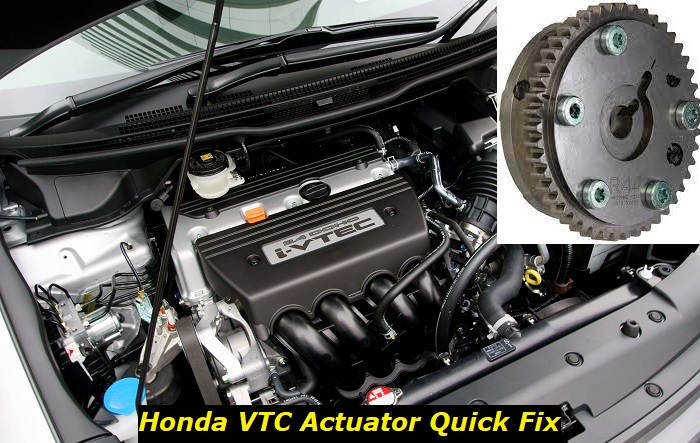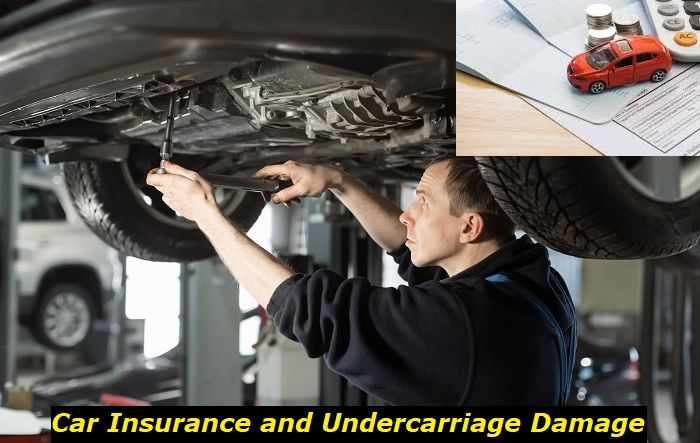When we say "Honda" what is the first thing that comes to mind? For most people, the answer is "reliability" However, contrary to popular belief, Hondas aren't bulletproof. A fair share of issues plagues these Japanese machines.
Camshaft problems highlights
- Level of importance:Medium
- Commonreasons:Variable valve timing actuator problems, cam bearings issues, overheating
- DIY inspection:Possible but complicated
- DIY repair:Impossible
- Price for repair:$350 - $850
- Can you drive?Usually, yes
- Ways to fix:Clean the VVT (VCT) solenoids, inspect the camshaft, clean the valves

What Is A Honda VTC Actuator?
Let's kick things off by taking a look at how the VTC actuator functions inside a Honda engine. I believe It's always a good idea to learn more about the parts in question before searching for remedies.
VTC is an acronym for Valve Timing Control actuator, which is an important component of your Honda's valve train assembly. It utilizes hydraulic pressure to adjust the camshaft timing, which affects how the intake and exhaust valves open and close. Due to this function, it is safe to say that the VTC actuator plays an important role when it comes to engine performance and fuel economy.
In simpler terms, the VTC actuator allows Honda engines to change camshaft timing on demand. However, Honda's aren't the only vehicles to come with this technology. Most modern vehicles with VVT technology also contain a VTC actuator.
Here are some benefits of having a VTC actuator.
- Improving performance at higher engine speeds
- Reduce harmful emissions from the exhaust
- Improving fuel economy
- Increasing engine stability at low RPMs
How To Identify A Faulty VTC Actuator?
As with all engine issues, VTC actuator problems have their own set of symptoms as well. Keep an eye out for one or more of these indications.
- Illuminated Check Engine Light
- Startup issues during cold temperatures
- Knocking sounds from the engine
- Bad fuel economy
- Lack of performance, especially at higher speeds
Why Do VTC Actuators Fail?
Although several problems can result in VTC actuator failure, the most common is low engine oil pressure.
You see, this actuator relies on hydraulic pressure for its operation. This hydraulic pressure is built up through engine oil pressure. The VTC actuator receives oil pressure diverted by the VVT solenoid, which it then uses to rotate the camshaft against the sprocket.
So, when the engine oil pressure is low, the VTC actuator doesn't have enough hydraulic power to move the camshaft as intended.
On top of oil pressure issues, regular wear and tear may also cause your VTC actuator to start acting up. The VTC actuator has several complex moving parts, and the failure of even the tiniest component can result in engine issues.
Quick Fixes For A Bad Honda VTC Actuator
Now that you have certified that the VTC actuator of your Honda has gone bad, you might be interested in some quick fixes.
As most VTC actuator failures are caused by inadequate oil pressure, low engine oil levels might be the root cause of your troubles. Take a dipstick reading, and top up the engine oil if the reading is too low.
Make sure to check the quality of the engine oil too, as dirty engine oil can cause the VTC actuator to clog up. So, If the engine oil is too dark or dirty, drain it out and replace it as soon as possible.
VTC Actuator Replacement
Although the aforementioned quick fix might sort out the issue for some of our readers, there is a majority who aren't that lucky. If an engine oil top-up doesn't make the VTC issues go away, the best course of action is to replace the part in its entirety.
Replacing a Honda VTC actuator requires you to take apart some engine components, such as the valve covers and the camshaft. Typically, this replacement takes around 4.5 hours to complete.
If you are handy with car repairs, you can try and tackle this issue by yourself. Doing so will save you some money that would otherwise be spent on labor costs. But, if you aren't experienced enough to carry out a repair of this nature, we recommend leaving the job to the experts.
Cost of Replacing A Honda VTC Actuator
The VTC actuator is buried deep within the engine, and it takes some engine disassembly to access it. As we mentioned earlier, this job takes around 4.5 to complete. So, you are looking at around $700 in labor costs if you want your local Honda dealer to complete the replacement for you.
Don't forget to add the cost of parts on top of that! According to Honda's catalog, the VTC actuator has a retail price of $265. Add these costs up, and you're looking at a total sum of around $900 before taxes for a Honda VTC actuator replacement.
Furthermore, if your engine has surpassed 200,000 miles, we recommend replacing the cam chain, chain guides, and tensioner as well. This will prevent reliability issues that would otherwise rear their ugly heads later down the line.
Also, don't forget to run and test the engine after the VTC replacement to ensure that it functions as intended.
Is It OK to Drive With A Bad VTC Actuator?
With the cost of vehicle maintenance going up day by day, some of you might not want to replace the VTC actuator as soon as it goes bad. But, should you keep driving your Honda in this state?
Initially, your engine will continue to function normally. However, you'll notice a considerable drop in both performance and fuel economy. Over time, the problem will worsen, and the clattering sounds from the engine will intensify.
Ignoring a failed VTC actuator for too long can cause significant damage to the timing chain and valve train. These additional issues come with hefty repair bills, and sometimes, these can result in complete engine failures.
Honda VTC Lawsuit
Issues with the Honda VTC actuator are so widespread that they have even landed the Japanese company in hot water with the law. This lawsuit includes several popular Honda models sold throughout the years, including the 2012 - 2014 CR-V, the 2012 Accord, and the 2012 - 2015 Crosstour.
This class action lawsuit alleges that the engines of the aforementioned models rattle during cold starts, damaging engine components like the timing chain tensioners and the timing chain itself.
On the other side of the fence, Honda denies these allegations and certifies that their vehicles aren't safety hazards.
Final Thoughts
The Variable Valve Timing Control Actuator is one of the most important parts of a Honda engine. It ensures that the engine is performing to its maximum and achieving the optimum fuel economy by adjusting the camshaft timing.
The Honda VTC actuator is notorious for failing across the Honda model range and is the main source behind some class action lawsuits. Not only do bad VTC actuators take a toll on engine performance, but they can also lead to catastrophic engine failures if you don't take care of them properly.
As the VTC system is linked with oil pressure, topping up the engine oil is one quick fix that you can try to remedy VTC issues. However, if that doesn't succeed, you're looking at a complete VTC actuator replacement.
Although it is possible for DIY mechanics to replace this actuator by themselves, we recommend taking your vehicle to the nearest Honda mechanic for this repair.
And as we mentioned earlier, this repair will cost you about $1000 for parts and labor and will take around 4.5 hours to complete.
And, as always, don't forget to use everything you've learned here today at CARARAC to ensure the VTC system of your Honda engine is working as it should.
About the authors
The CarAraC research team is composed of seasoned auto mechanics and automotive industry professionals, including individuals with advanced degrees and certifications in their field. Our team members boast prestigious credentials, reflecting their extensive knowledge and skills. These qualifications include: IMI: Institute of the Motor Industry, ASE-Certified Master Automobile Technicians; Coventry University, Graduate of MA in Automotive Journalism; Politecnico di Torino, Italy, MS Automotive Engineering; Ss. Cyril and Methodius University in Skopje, Mechanical University in Skopje; TOC Automotive College; DHA Suffa University, Department of Mechanical Engineering






Add comment